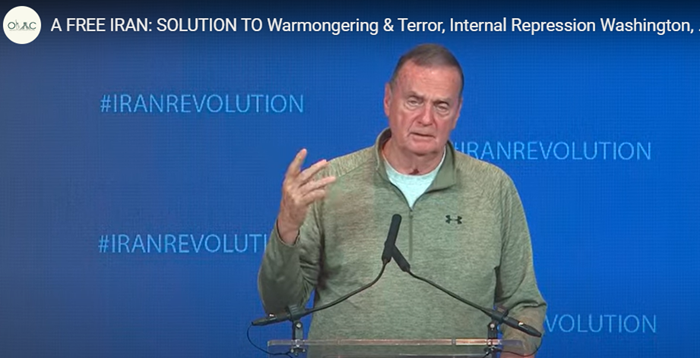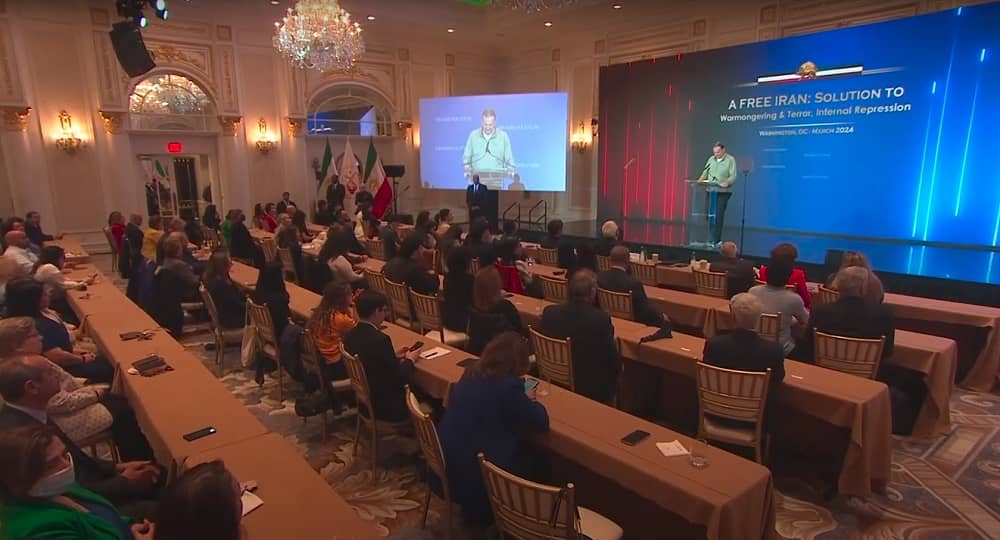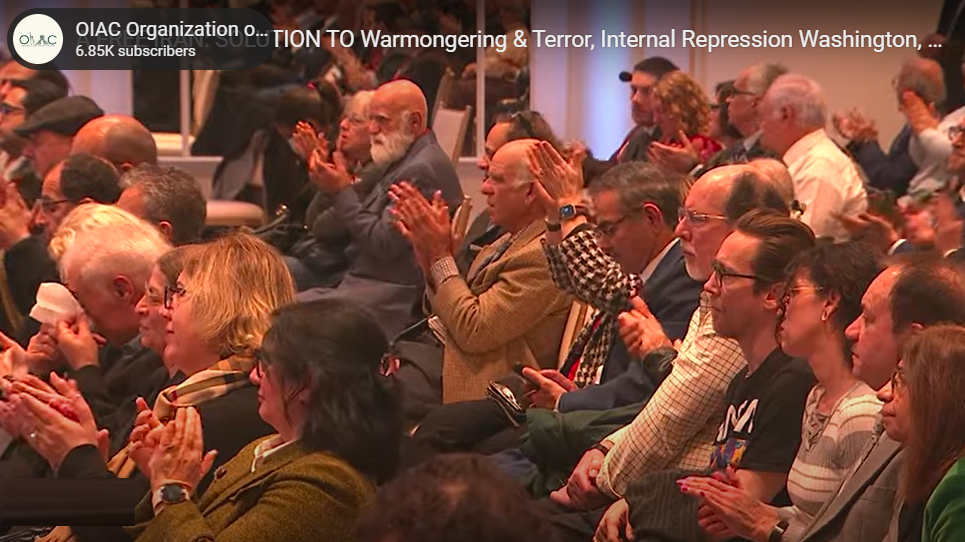
On March 9th, at a significant bipartisan summit in Washington, D.C., General James L. Jones, former US National Security Advisor under President Obama, delivered a stark warning about the challenges posed by Iran’s regime.
Addressing a diverse audience, General Jones characterized Iran as a “central hub of terrorism,” highlighting its destabilizing role in global affairs.“The Iranian regime sows chaos, instability, and anguish throughout the Middle East and too much of the world,” Jones stated, emphasizing the undeniable impact of Iran’s actions on global terrorism. His address underscored the dual nature of the Iranian regime externally formidable through terror proxies, yet internally fragile and facing growing opposition.
“The overwhelming majority of Iran’s population opted for abstention, a poignant sign of their yearnings for democratic regime and change,” he observed. According to Jones, the elections served as a de facto referendum, with the populace largely rejecting the ruling clerics’ authority.
Highlighting the burgeoning resistance within Iran, General Jones commended the People’s Mojahedin of Iran (PMOI/MEK) and the National Council of Resistance of Iran (NCRI) for their unwavering determination. “The regime is getting weaker, the organized opposition…is gaining strength and appeal among the population,” he noted, signaling a growing domestic challenge to Tehran’s rulers.

Jones pointed to the low turnout in Iran’s March 1st parliamentary elections as a clear indicator of the regime’s dwindling legitimacy among its people.
General Jones also touched upon the regime’s attempts to suppress opposition, including planned sham trials against Iranian Resistance leaders, as acts of desperation. He criticized these measures as efforts to quash dissent and emphasized the international community’s moral obligation to support the Iranian people’s right to resist oppression.
In his concluding remarks, Jones lauded the NCRI’s Ten-Point Plan for a future Iran, framing it as a vision for democracy, secularism, and non-nuclear status that aligns with American values. He pledged continued advocacy within the U.S. to support this vision, underscoring the importance of educating national leaders about the Iranian resistance’s goals.

General Jones’s address at the bipartisan summit sheds light on the complex dynamics of Iran’s domestic and international challenges.
By calling for unwavering support for Iran’s resistance movements, he underscores a path toward a more stable and democratic region. His speech not only reflects the urgency of addressing Iran’s role in global terrorism but also the potential for significant change within the country, driven by its people and supported by the international community.

MEK Iran (follow us on Twitter and Facebook), Maryam Rajavi’s on her site, Twitter & Facebook, NCRI (Twitter & Facebook), and People’s Mojahedin Organization of Iran – MEK IRAN – YouTu
